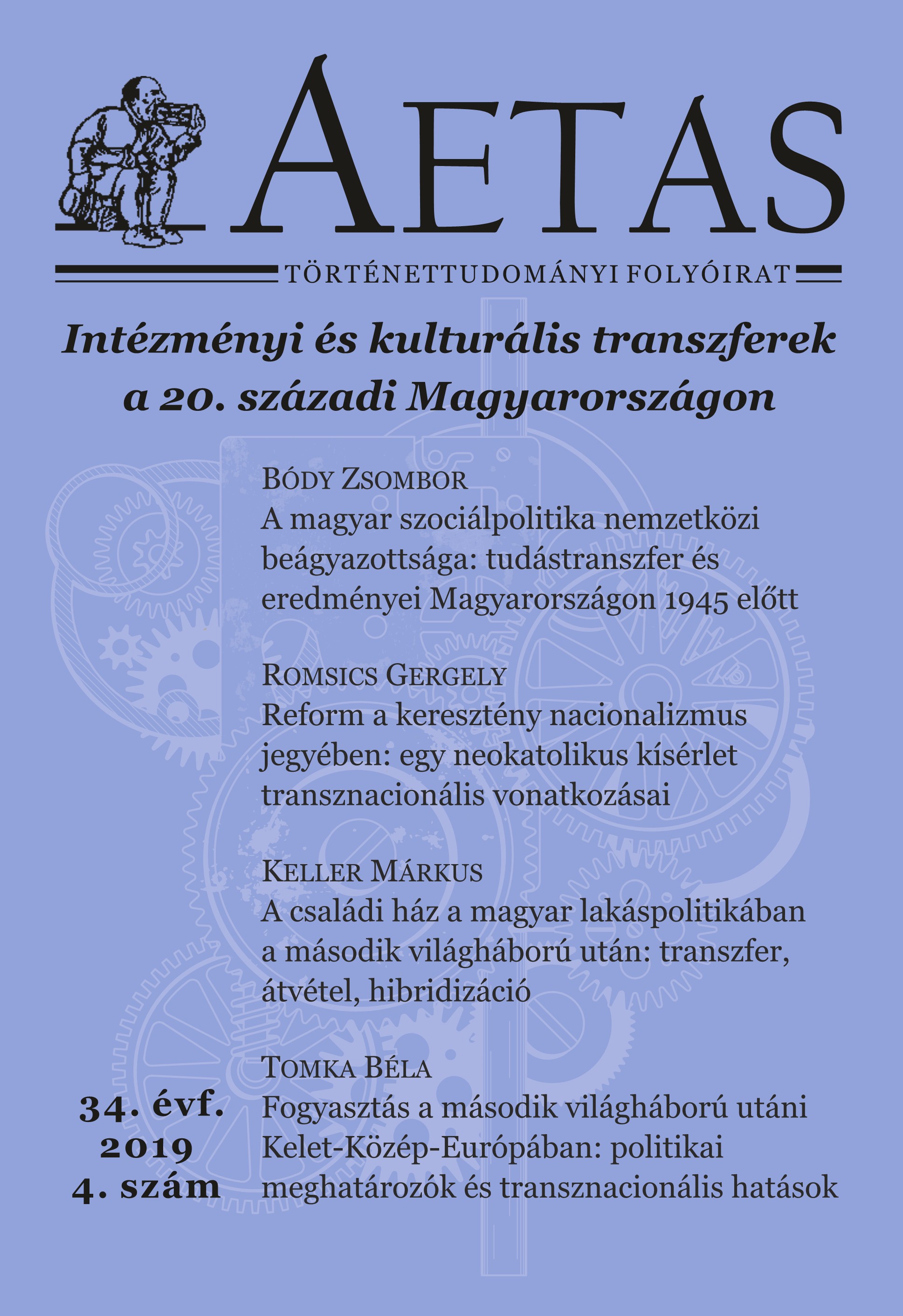A magyar szociálpolitika nemzetközi beágyazottsága: tudástranszfer és eredményei Magyarországon 1945 előtt
Hungarian Social Policy in an International Context: Knowledge Transfer and Its Results in Hungary Before 1945
Author(s): Zsombor BódySubject(s): Interwar Period (1920 - 1939)
Published by: AETAS Könyv- és Lapkiadó Egyesület
Summary/Abstract: The study explores the connection between Hungarian social policy discourse and international knowledge production related to social issues in the late 19th century and the first half of the 20th century. According to present analysis the experts developing the Compulsory Sickness Insurance Act of 1891 in Hungary intended it as part of a social engineering plan, as a preventive measure against problems they expected to become more severe in the upcoming years, as industrialization was still in its infancy in the country. As large-scale industry and welfare institutions developed, social policy (especially in 1907 and 1927-28) became a battleground of different parties with varying interests, therefore we can no longer talk about the relatively free adaptation of international knowledge, which characterized the initial steps in the creation of the welfare system. The study reveals that participation in the international transfers of knowledge required experts, whose professional and partially political position was created due to the participation in the transfer. The essay presents how social policy experts succeeded in transferring international knowledge in the field to Hungary, developing relations with the political elite, and contributing to social policymaking through these relations. This account also challenges the notion that in the final decades of dualism the government’s liberalism became “self-preserving”, as the political elite was receptive towards the input of social policy experts and was ready to handle the social issues emerging with industrialization by creating new institutions. Finally, the study examines the channels of knowledge transfer established by Hungary’s membership in the International Labour Organization (ILO) between the two World Wars, and the international social policy guidelines which were adopted into Hungarian legislation due to the country’s ILO membership.
Journal: AETAS - Történettudományi folyóirat
- Issue Year: 2019
- Issue No: 4
- Page Range: 5-26
- Page Count: 22
- Language: Hungarian

